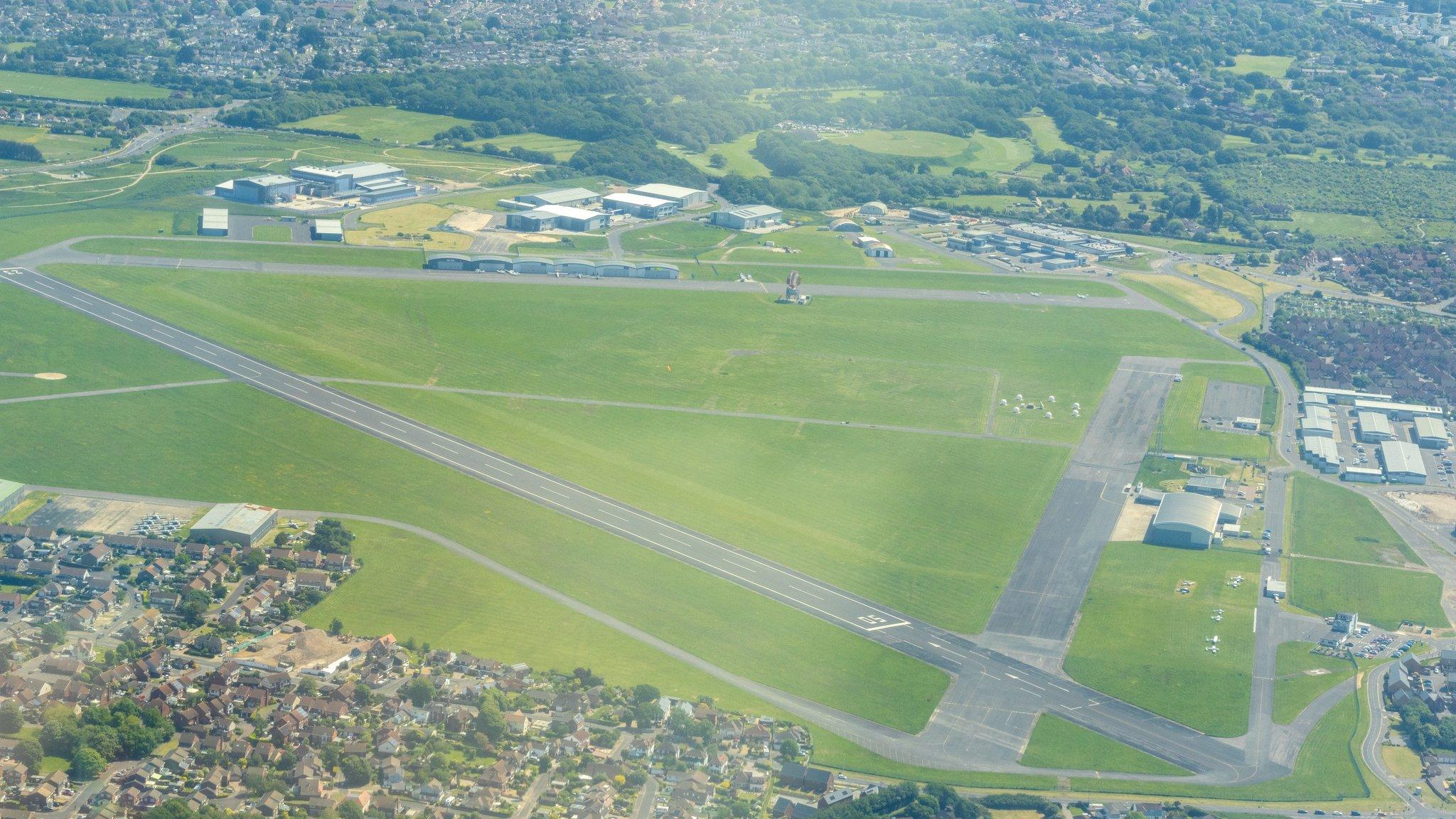Couple to join Pegasus Bridge memorial for uncle
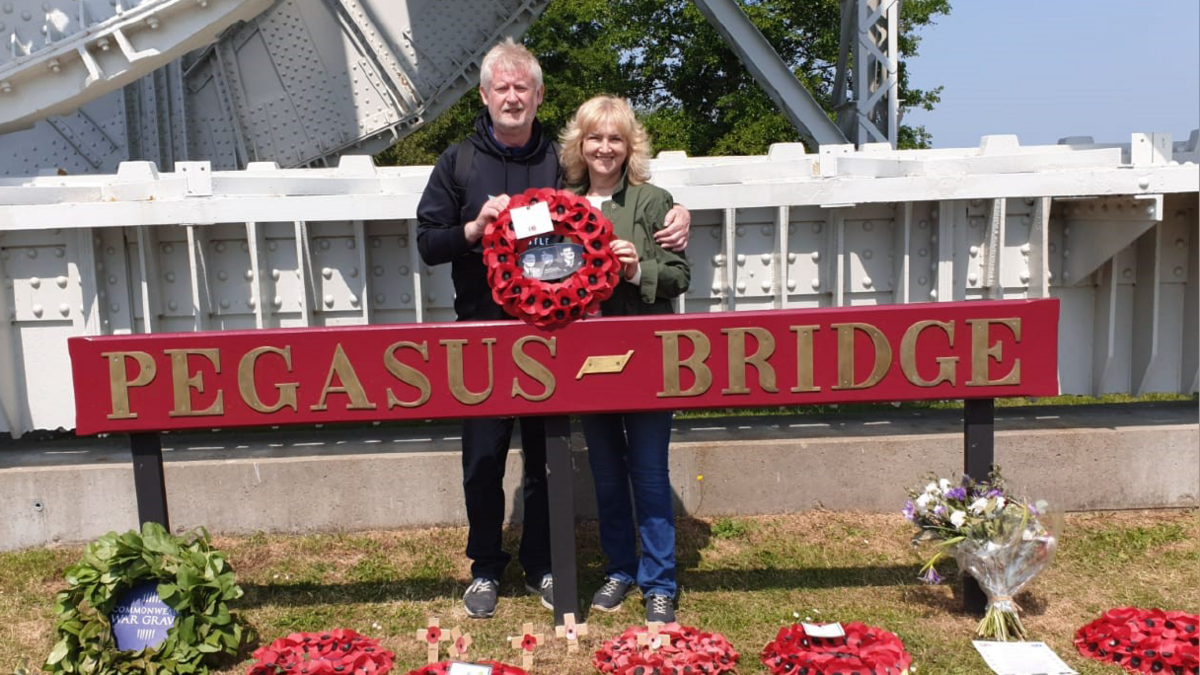
Carole and Gerard Stewart have spent the last five years researching Carole's glider-flying uncle Fred
- Published
A woman whose uncle was involved in the taking of Pegasus Bridge in World War Two is set to join a commemoration event in his memory.
Sapper Frederick George Shorey, from North Shields, served in the 249 Field Company (Airborne) Royal Engineers and was on the first glider to land just after midnight on 6 June 1944.
Injured a few days later, he spent time in hospital writing a full account what he called "one of the many small jobs" that were part of the invasion.
His niece Carole Stewart, who discovered her uncle's letters with husband Gerard Stewart, will be at events at Pegasus Bridge in France on 6 June to mark the 80th anniversary of the battle.
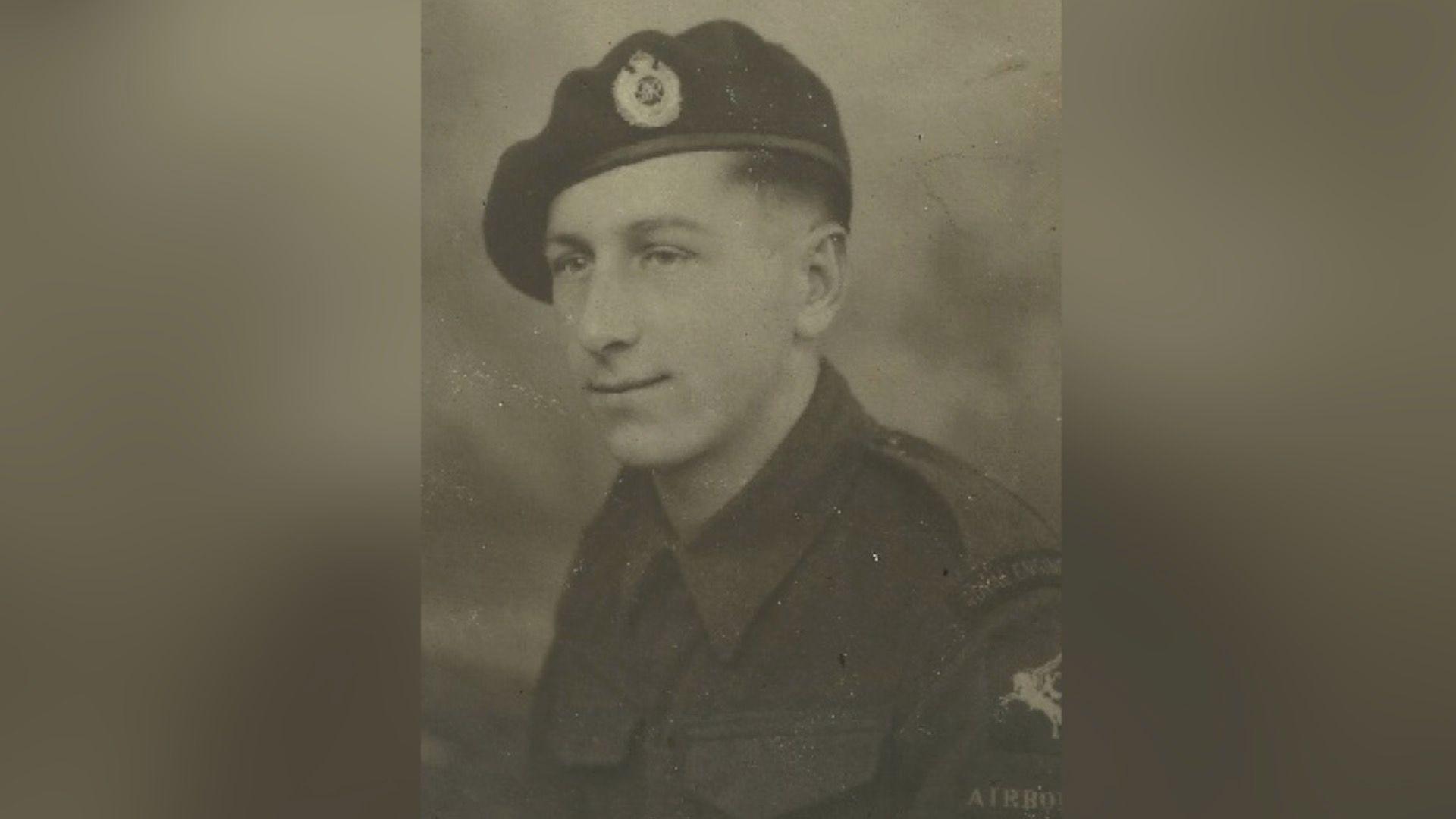
Frederick Shorey survived the operation to take Pegasus Bridge but died on Boxing day 1944 during the Battle of the Bulge
"My Dad always carried a picture of his brother Fred in his wallet but we never really talked about him too much," Mrs Stewart said.
She added: "Just before the 75th anniversary of D-Day, I was chatting to my husband and mentioned Uncle Fred was involved in the operation to take Pegasus Bridge and he got very excited and that was the start of what we call Operation Uncle Fred."
Further research led to a box, tucked away and forgotten in a relative's loft, containing letters Fred had written home and his 22 page account of the taking of Pegasus Bridge.
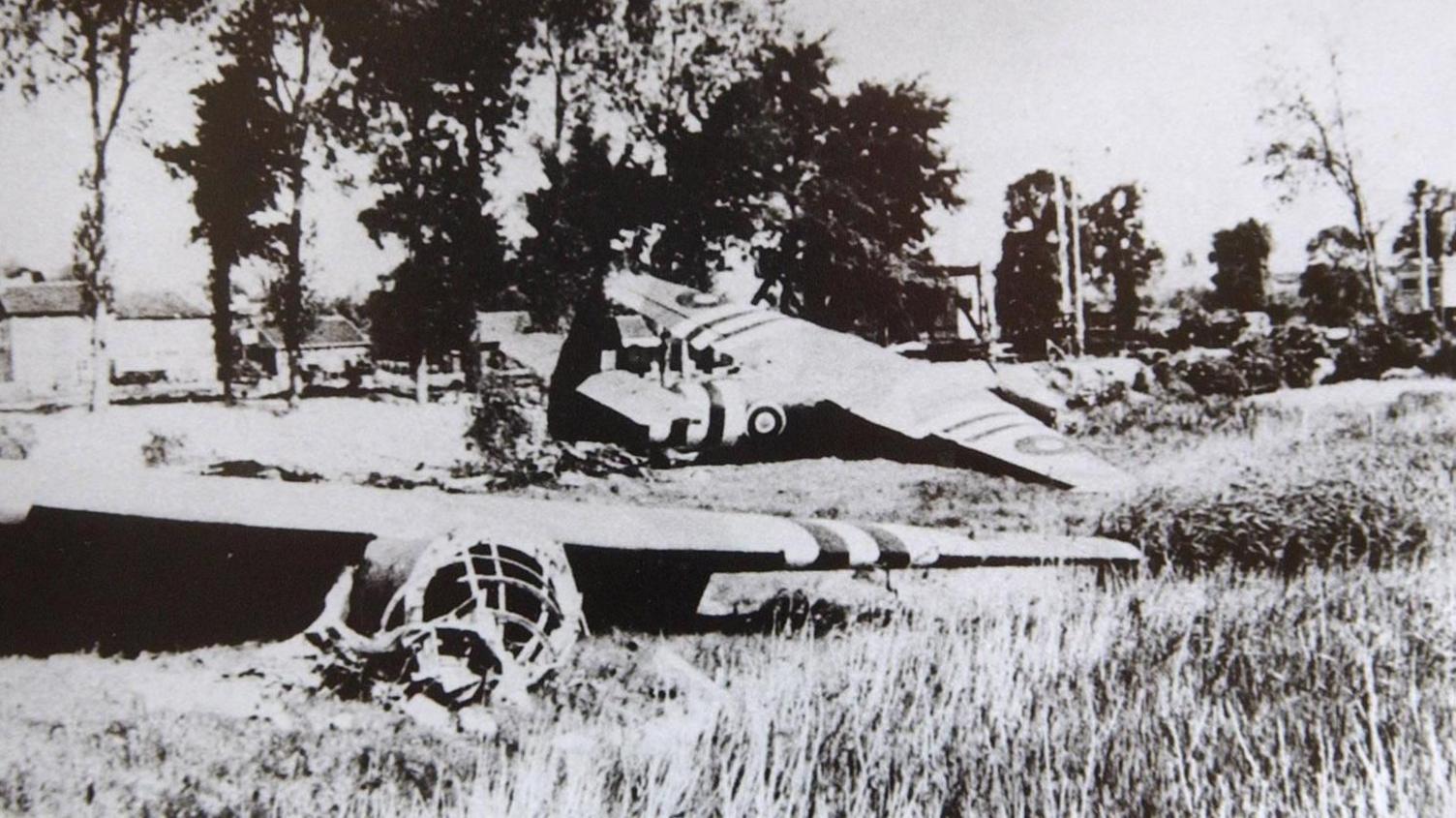
Frederick Shorey was on the first of three gliders to arrive at Pegasus Bridge
Operation Deadstick , external involved a small force of men landing at Ranville-Benouville in gliders having been towed across the Channel by Halifax Bombers.
The bridge was captured after a fierce 10 minute fire fight, the action all over by 00:26 on 6 June 1944 six hours before the beach landings.
"It's incredibly detailed - the glider flight, his feelings, what he saw, the horrendous landing - the taking of the bridge and what the following days held," Mrs Stewart said.
"It is so well written you feel as you read it that you are with him throughout," she added.
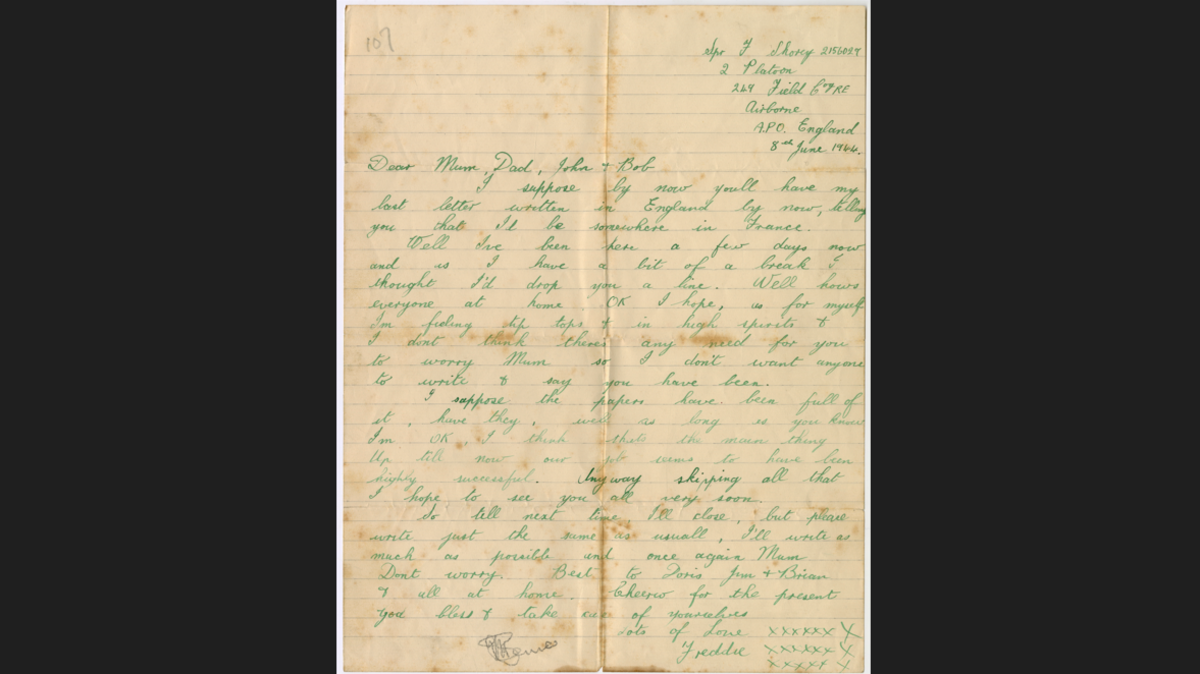
In a letter home shortly after the operation, Frederick Shorey told his mother there was no need to worry
Mr and Mrs Stewart, from Northumberland, have been working with the Director and Curator at the Memorial Pegasus museum in Ranville to bring together all the letters in an exhibit book for display at the 80th anniversary of D-Day and beyond.
"We are so proud that Fred will be honoured and remembered, it's a great tribute to him and great for our region too," Mrs Stewart said.
"We feel we have brought him back to life and honoured his memory," Mr Stewart added.
It is believed Fred's account was the first to be written by a soldier involved in the offensive.
He was killed on Boxing Day 1944 during the Battle of the Bulge, but before he died he sent a letter which must have had a Christmas parcel with it.
"Just a little something I've scraped together for you, better than nothing I hope you appreciate it," he wrote, adding: "Fags between Dad [and] Bob and sweets for you Mam and that little parcel of sweets for Brian."
His parents would have received it after he lost his life.
Follow BBC North East on X (formerly Twitter), external, Facebook, external and Instagram, external. Send your story ideas to northeastandcumbria@bbc.co.uk.
Related topics
More stories from BBC North East and Cumbria
- Published31 May 2024
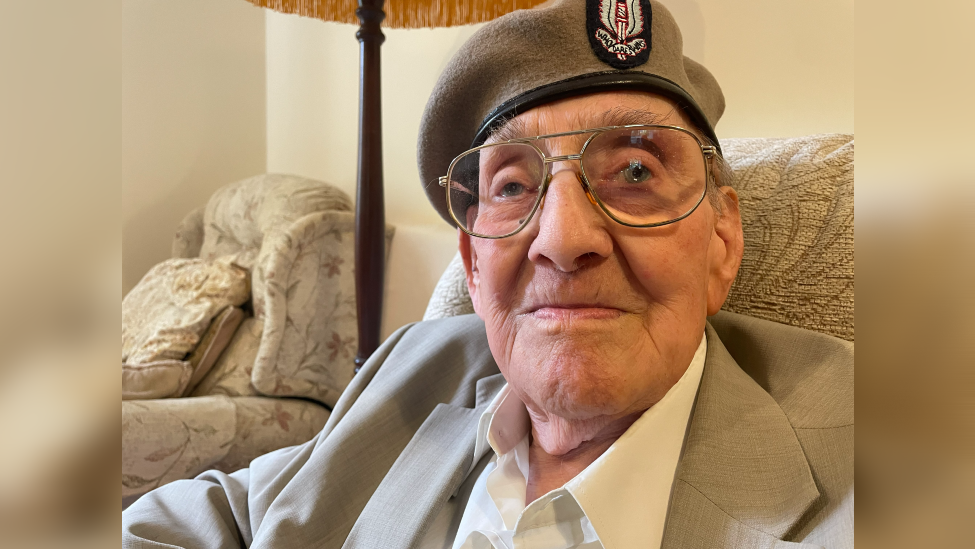
- Published17 March 2024
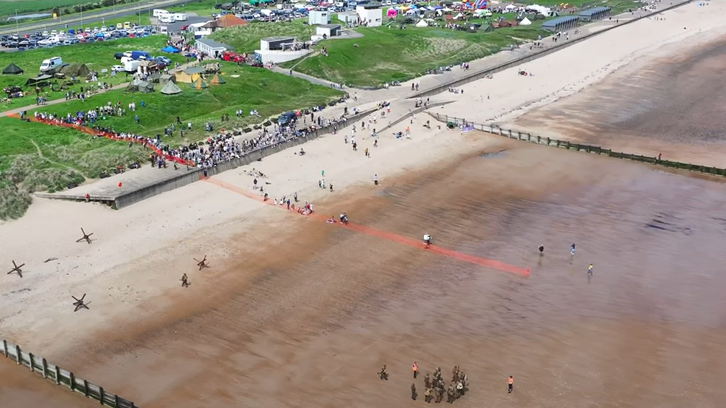
- Published13 March 2024
